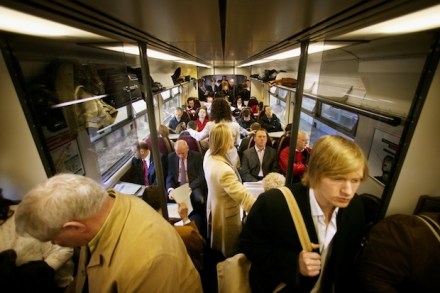Like fracking, HS2 will define David Cameron as a progressive or protective conservative
Why is David Cameron still backing High Speed 2? It’s controversial inside his party and divisive in the Tory heartlands. Despite a government task force set up to promote the business case for the new railway, the anti-HS2 brigade are winning the war of the words, as evidenced by Fleet Street’s recent attacks on the project. The Mail on Sunday splashed yesterday with leaked analysis on how HS2 is going to result in vast amounts of disruption in beautiful parts of the country. Not exactly a new revelation but the full impact of the construction is only being realised now. With this knowledge, Melissa Kite argues in the Guardian today that Cameron is only pushing ahead with the








